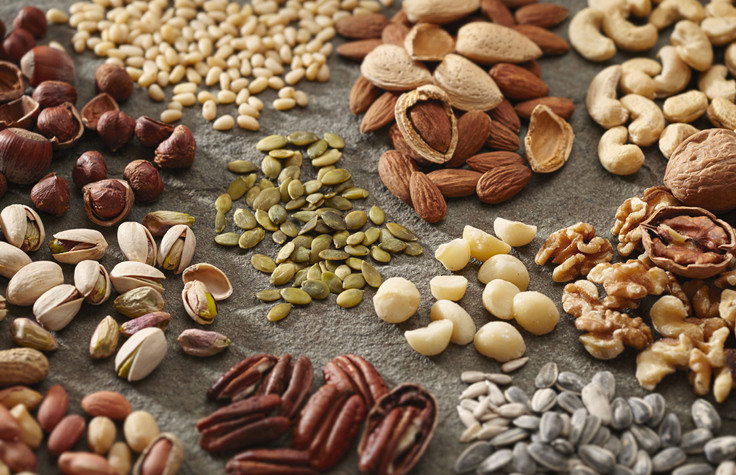Peanuts vs. Almonds: Which Offers Greater Health Benefits?
In the world of nuts, peanuts and almonds have long been favorites for snackers, chefs, and nutritionists alike. But when it comes to health benefits, which one takes the crown? Let’s delve into the nutritional profiles, health advantages, and potential drawbacks of each to determine the winner in this nutty showdown.
Nutritional Overview:
Peanuts:
- Calories: Approximately 567 calories per 100 grams.
- Protein: 25.8 grams.
- Fat: 49 grams, with a mix of monounsaturated and polyunsaturated fats.
- Fiber: 8.5 grams.
- Vitamins & Minerals: Rich in niacin, folate, magnesium, vitamin E, and phosphorus.
Almonds:
- Calories: Approximately 579 calories per 100 grams.
- Protein: 21 grams.
- Fat: 50 grams, predominantly monounsaturated fats.
- Fiber: 12.5 grams.
- Vitamins & Minerals: High in vitamin E, magnesium, riboflavin, and calcium.
Health Benefits:
Peanuts:
- Heart Health: The monounsaturated fats in peanuts can help reduce bad cholesterol levels, potentially decreasing the risk of heart disease.
- Weight Management: Their protein and fiber content can increase feelings of fullness, potentially aiding in weight loss efforts.
- Brain Health: Peanuts are a good source of niacin, which has been linked to a reduced risk of age-related brain disorders.
Almonds:
- Bone Health: Almonds are rich in calcium, which is vital for maintaining strong bones and teeth.
- Antioxidant Properties: High in vitamin E, almonds can help combat oxidative stress in the body.
- Blood Sugar Control: The magnesium in almonds can improve insulin function, potentially benefitting those with type 2 diabetes.
Potential Drawbacks:
Peanuts:
- Allergies: Peanut allergies are relatively common and can be severe.
- Aflatoxins: Peanuts can sometimes be contaminated with aflatoxins, which are toxic compounds produced by certain molds.
Almonds:
- Water Consumption: Almond cultivation requires significant amounts of water, leading to environmental concerns in drought-prone areas.
- Phytic Acid: Almonds contain phytic acid, which can inhibit the absorption of certain minerals.
Both peanuts and almonds offer a plethora of health benefits, making them excellent additions to a balanced diet. While peanuts are a great source of protein and beneficial for heart and brain health, almonds shine in the departments of bone health, antioxidant properties, and blood sugar control.
Choosing between the two ultimately depends on individual nutritional needs and preferences. For those seeking higher fiber and calcium, almonds might be the better choice. However, for those looking for more protein and a potentially more budget-friendly option, peanuts could be the way to go.
Regardless of the choice, it’s essential to consume both nuts in moderation and as part of a diverse diet to reap the maximum health benefits.
